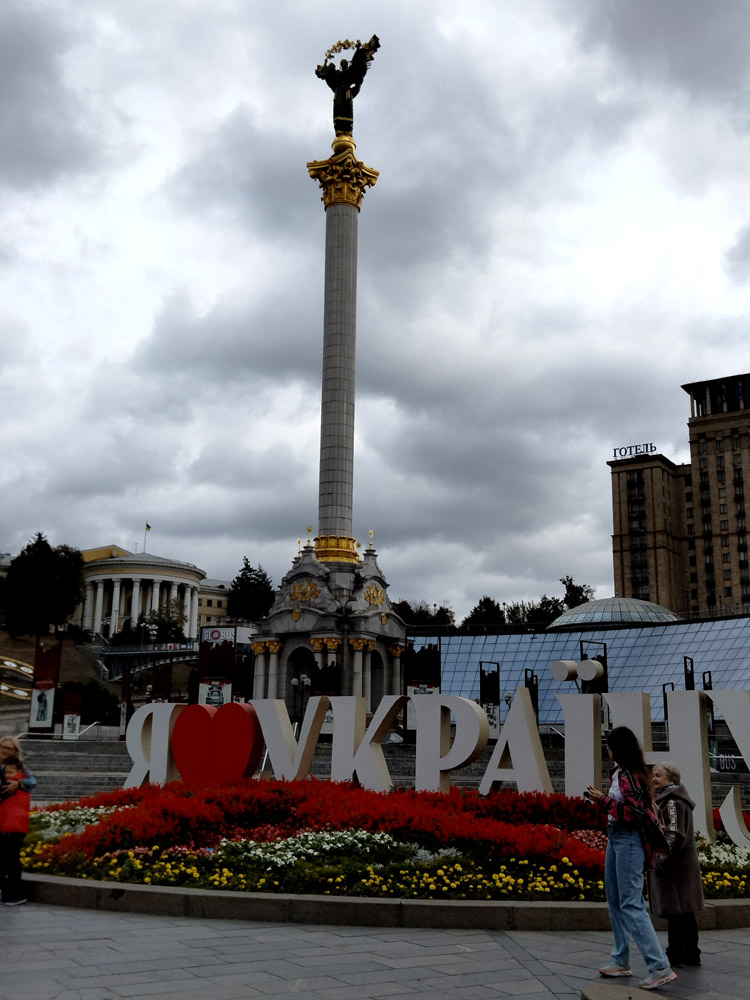|
One can start a story about Ukraine in 2014, 1991, or
even all the way back in the ninth century. The following three journals,
however, present a snapshot of Ukraine from October 2023, a unique moment in the
course of Ukraine's defense against Russian aggression. It is a time that
Ukrainians remembered their army's success of the previous year in pushing
Russian forces back ("de-occupying," as they say) out of significant territories
around Kherson and Kharkiv. Along with a burning anger against the cruelty
contained in Russian atrocities, there was also a large measure of hope and
expectation for an ultimate Ukrainian victory.
It was a period not destined to last long, because it
falls at the beginning of the winter military lull. One way or another, things
will change in spring 2024. As of winter 2023, there has been a military slowdown
due to cold weather. This leads to the use of tactics other than ground-based
assaults, on both sides. In late December Ukraine destroyed (or seriously
damaged) a Russian warship moored in Crimea; soon afterwards. Russia launched
its biggest-ever bombing campaign against many Ukrainian cities, from Lviv to
Kharkiv and from Chernihiv to Odesa.
One can try to predict what will happen in 2024, but
that is not the goal of this writing. Rather, I wish to represent the hopes, the
ideas, and the attitudes of Ukrainians as I heard them for four weeks in Lviv,
Kharkiv, and other parts of the country. These journals share portions of many
conversations packed into that short period. Some of the words of my respondents
are raw and emotional; however, often a simple sentence tells more than any
analysis I could offer. People have a natural eloquence when speaking about
their own lives. I have changed all of the names of my respondents to
protect their privacy. When my brother asked me why I wanted to go to Ukraine,
I answered, "The usual reasons: solidarity and witnessing." This answer came
naturally to me, since I have visited postwar Bosnia-Herzegovina many times, and
I have spent time in Palestine/Israel as well. You'll notice several references
and comparisons to life and war in Bosnia.
I already had a beginning familiarity with Ukraine,
having traveled there with my brother in 2019. Among other cities, that visit
took us to the western region called Galicia, and to a town near Lviv, where our
grandmother was born. People in Ukraine asked me why I returned during the
Russian escalation; I answered that one can stay home and read endless news
articles and opinion pieces about Ukraine. I have my own opinions: that a nation
under assault has the right to defend itself and fight against occupation, and
that sympathetic nations have the responsibility to assist them—especially
powerful states like the US. But it was important to me to make first-hand
contact with ordinary people in Ukraine, to see what they were experiencing, and
to hear what they were thinking about their lives in wartime conditions. Besides
opinions, I had questions. Now I have
more questions, and a few tentative answers.

Patriotic
monument at Maidan Square
First article:
Normal vs.
trauma; language shifts; the Third Answer
UKRAINE JOURNALS:
Introduction
1
Trauma vs. "normal
life"; language shifts; the third answer
2 Nationalist history; grim monuments; new heroes
3
Volunteerism in wartime
Ukraine
|